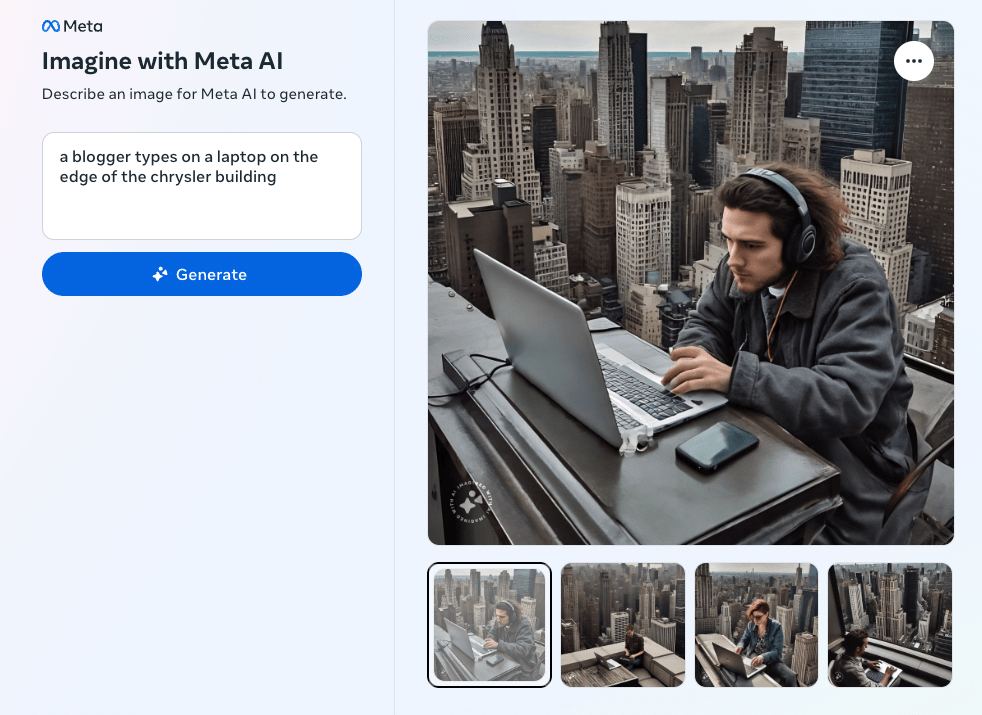Meta Platforms, the parent company overseeing Facebook, Instagram, Whatsapp, and Quest VR headsets, as well as the developer of the prominent open-source large language model Llama 2, has entered the realm of text-to-image AI generation.
To clarify, Meta was previously engaged in this field through a text-to-image and text-to-sticker generator introduced on Facebook and Instagram Messengers earlier this year. However, the recent development involves the launch of a standalone text-to-image AI generator service named “Imagine” outside of its messaging platforms.
Imagine, now accessible through the website imagine.meta.com, allows users to generate images after logging in with their Meta, Facebook, or Instagram accounts. Early feedback on Meta’s Imagine has been varied, with AI artists exploring its capabilities to swiftly produce high-quality visuals, drawing comparisons to established AI image generators like Midjourney, Stable Diffusion, and OpenAI’s DALL-E.
VentureBeat’s preliminary assessments revealed occasional challenges in generating realistic human figures and structures, sometimes resulting in anomalies such as distorted body parts and scenes.
The interface of Imagine is notably simplistic, featuring a prompt field and four downloadable images without the option to remix, unlike its messenger counterparts. Additionally, users are limited to a 1:1 aspect ratio square for image resizing, with a watermark bearing the “Imagine” label and logo embedded in the lower right corner of all images.
A Meta spokesperson mentioned plans to introduce an invisible watermark in the future to enhance transparency and traceability of AI-generated images. Despite limitations, Meta aims to provide a functional, free alternative to subscription-based AI art generators, leveraging its extensive dataset, particularly focused on human imagery from Facebook and Instagram users.
Powered by the Emu AI model trained on 1.1 billion user photos from Facebook and Instagram, Meta’s Imagine service prioritizes user data for training, excluding private content and non-publicly shared images. This strategy contrasts with competitors accused of copyright infringement for using publicly available artworks to train their models.
Meta researchers refined Emu by incorporating quality metrics, emphasizing the impact of a small set of high-quality images and associated text on the aesthetic output without compromising generality in visual concepts.
Despite Meta’s advocacy for open-source AI, Emu and the Imagine by Meta AI service are not currently open source. In light of these developments, Meta continues to introduce AI-enhanced features across its platforms, including a “reimagine” function enabling users to create new AI-generated images based on text prompts within Facebook Messenger and Instagram messages.






